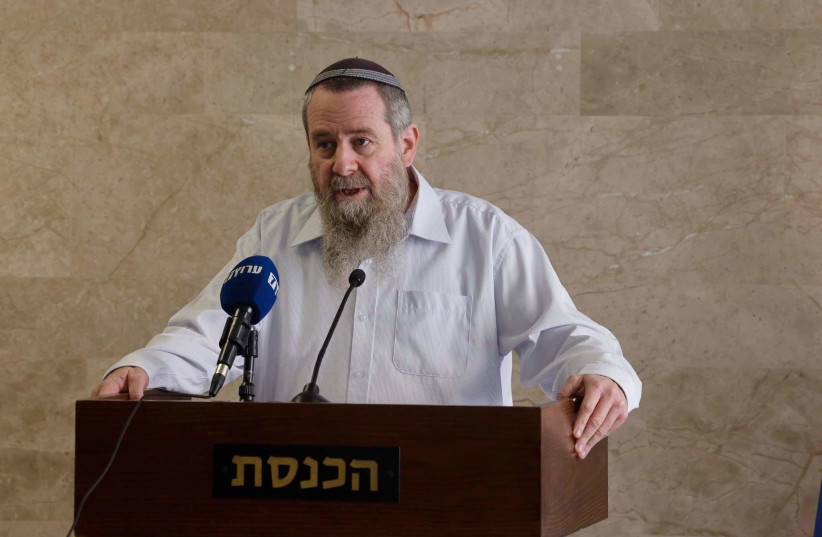The Tel Aviv Regional Labor Court on Wednesday will hear Justice Ministry anti-racism czar Aweke Kobe Zena’s suit over allegations that his contract was not renewed because of political discrimination, which followed a Sunday High Court of Justice ruling delaying his termination.
The High Court extended Zena’s employment until next Sunday, so that he could file to the labor court on Monday, but it also rejected Zena’s petition. He had called for an injunction against the Justice Ministry and civil service for an explanation for his termination. The petition was filed to the High Court under a cloud of suspicion by his supporters that his contract had not been renewed over a Noam Party blacklist.
The court determined that the petition should have been filed to the labor court, as the case is foremost a work dispute and all other legal avenues need to be explored before the last resort recourse of the High Court. Accepting the petition would have created a shortcut around the labor court. Arguments that the case would have eventually ended up at the High Court were rejected, as it was explained that the High Court is for issues of great importance to the public or exceptional cases, not initial appeals.
Zena was appointed to head the Justice Ministry’s anti-racism unit in 2016, with a six-year contract and two additional optional years. In early June, the decision not to renew his contract was made by Regional Cooperation Minister David Amsalem, with a spokesman saying that the contract had simply expired and was in line with other fixed-tenure office holders.
Noam party blacklist
Activists and supporters of Zena argue that the decision was influenced by a Noam Party blacklist and Zena’s work exposing anti-Arab racism in addition to other strains of hateful conduct. The 2019 blacklist documents, published by Yediot Aharonot in 2022, detailed the names and affiliations of LGBTQ+ persons in media, feminist academics, and other figures in government. The list included Zena by name, human rights activist Dr. Shula Mola told The Jerusalem Post in June.

The Anti-Racism Unit had been created to tackle racism and discrimination in Israel following the 2015 protests by the Ethiopian community against alleged systemic racism, especially in law enforcement. Former Justice Ministry director-general Emi Palmor told the Post in June that the unit had accepted and sought to address complaints against the Israeli Ethiopian community, as well as Haredim, former Soviet Union immigrants, Druze, and Arabs. Activists believe that it was his work against anti-Arab discrimination that led to his termination.
In his petition, Zena argued that his firing was made arbitrarily, without any factual justification, creating the appearance that there were extraneous motivations.
There has been an outpour of support for Zena and his contributions following news of his termination, including from right-wing NGO Btsalmo, which described him as a “tremendous asset” to the State of Israel.
